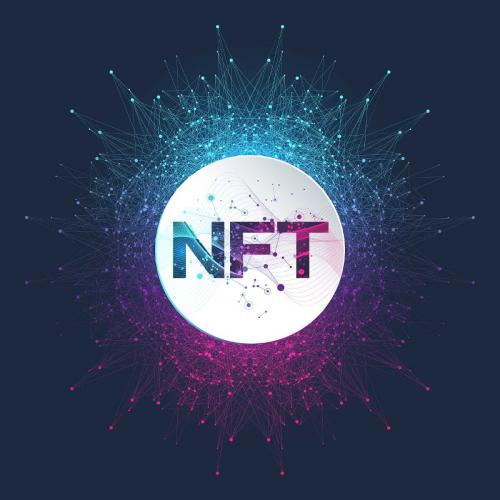LCX AG, a cryptocurrency exchange based in Liechtenstein, recently lost nearly $8 million in digital assets from a cyberattack. The perpetrator’s identity was unknown. Through the public ledger, LCX found the blockchain address that received the stolen assets, and quickly filed a complaint in New York to freeze certain of those assets.[1] Without any other way to contact the perpetrator, the court permitted LCX to serve the wallet address with an NFT containing a hyperlink to the required legal notice documents.[2] This may be the first example of service-by-NFT.
Every jurisdiction has its own rules regarding service of process. Providing legal notice is sometimes done without issue by serving a defendant personally, or even via certified mail or email. However, evasive defendants can make service difficult. Process servers are often hired when parties are resistant or evasive, resulting in some creative services.[3] But even the most imaginative process servers can’t help when the defendant itself is unknown, as is often the case in crypto-fraud.
This innovative use of NFTs by LCX, if it succeeds, could be useful to parties struggling to provide legal notice, particularly victims of cyberattacks and crypto phishing scams, which have cost $1 billion in lost assets for 45,000+ wallet owners, according to the Federal Trade Commission.[4] Other courts may be catching on: a few weeks after LCX successfully petitioned the New York court to send legal notice through an NFT, a London court held that service-by-NFT was valid in a case where the plaintiff was defrauded over $2 million USD in digital assets by a Hong Kong registered trading platform.[5]
Serving a crypto-thief by NFT over the blockchain has benefits. Though the personal identity of a thief may be unknown, the wallet address—a unique string of numbers and letters used to verify transactions on the blockchain—used for the improper transfer of assets is publicly available to everyone on the blockchain. The hyperlink embedded in an NFT ensures that the sender knows precisely when the NFT is opened, indicating that the receiver viewed the court documents. This allows for a quick and easy way to alert an otherwise unreachable party. Because NFTs are digital and non-duplicable, there is no risk of the legal notice being “lost in the mail” or otherwise tampered with during delivery.
Looking forward, it is conceivable that other digital means may be used to try to effect service in the near future. For example, a party might attempt to use the metaverse to serve legal notice on defendants via their avatars in a shared virtual space. Or, perhaps a process server will try to visit a virtual residence or other virtual real estate location to serve court documents to a defendant.
On the other hand, service-by-NFT does have shortfalls. The receiver can simply ignore the NFT and never open the link to the court documents. And though the sender can see when the NFT is opened, there is no way to know who opened it, which may give courts cause for concern.
This is an area to watch but, for the time being, courts will likely view service-by-NFT as a last resort. Parties should continue to follow existing procedures in the relevant jurisdiction, including federal, state, and other local legal notice rules; as yet, there is no guarantee that a particular court will consider service-by-NFT sufficient. Based on precedent, we expect courts will at least mandate a showing that a defendant cannot be reached by other means prior to approving this alternate method of service.
[1] LCX AG v. John Doe Nos. 1-25, Case No. 154644/2022, NYSCEF Doc. No. 2, in the Supreme Court of the State of New York, County of New York.
[2] See https://www.law360.com/articles/1500820/in-industry-first-holland-knight…
[3] For example, Olivia Wilde was served court documents while she was giving a presentation at a film convention in May 2022. See https://www.npr.org/2022/04/29/1095415035/olivia-wilde-jason-sudeikis-process-server-cinemacon-envelope.
[4] See https://www.ftc.gov/news-events/data-visualizations/data-spotlight/2022/06/reports-show-scammers-cashing-crypto-craze.
[5] Fabrizio D’Aloia v. Persons Unknown, Binance Holdings Ltd. and Others, Case No. BL-2022-001008, Doc. No. 2022 EWHC 1723, in the Business and Property Court of the High Court of Justice of England and Wales.
About this Author
Sherli handles a broad range of intellectual property matters in the fashion and entertainment industries.
Sherli’s practice focuses on complex intellectual property disputes such as trademark and copyright infringement, internet rights and the DMCA, contract and commercial disputes, rights of publicity and unfair competition. Her experience includes representing clients with intellectual property policing and licensing, intellectual property rights, and credit rights and revenue distribution. Sherli regularly counsels fashion and media clients…

You are responsible for reading, understanding and agreeing to the National Law Review’s (NLR’s) and the National Law Forum LLC’s Terms of Use and Privacy Policy before using the National Law Review website. The National Law Review is a free to use, no-log in database of legal and business articles. The content and links on www.NatLawReview.com are intended for general information purposes only. Any legal analysis, legislative updates or other content and links should not be construed as legal or professional advice or a substitute for such advice. No attorney-client or confidential relationship is formed by the transmission of information between you and the National Law Review website or any of the law firms, attorneys or other professionals or organizations who include content on the National Law Review website. If you require legal or professional advice, kindly contact an attorney or other suitable professional advisor.
Some states have laws and ethical rules regarding solicitation and advertisement practices by attorneys and/or other professionals. The National Law Review is not a law firm nor is www.NatLawReview.com intended to be a referral service for attorneys and/or other professionals. The NLR does not wish, nor does it intend, to solicit the business of anyone or to refer anyone to an attorney or other professional. NLR does not answer legal questions nor will we refer you to an attorney or other professional if you request such information from us.
Under certain state laws the following statements may be required on this website and we have included them in order to be in full compliance with these rules. The choice of a lawyer or other professional is an important decision and should not be based solely upon advertisements. Attorney Advertising Notice: Prior results do not guarantee a similar outcome. Statement in compliance with Texas Rules of Professional Conduct. Unless otherwise noted, attorneys are not certified by the Texas Board of Legal Specialization, nor can NLR attest to the accuracy of any notation of Legal Specialization or other Professional Credentials.
The National Law Review – National Law Forum LLC 3 Grant Square #141 Hinsdale, IL 60521 Telephone (708) 357-3317 or toll free (877) 357-3317. If you would ike to contact us via email please click here.


